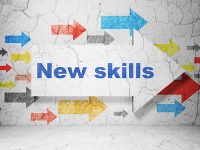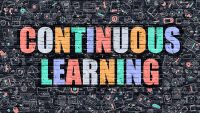Employees are valuing career development more than ever—it’s a sign that the company is willing to invest in their future. How are businesses approaching training today? What are their pain points, and what topics are being addressed in training?
In a tech-dominant world, companies now expect employees to possess the skills needed to harness the power of technologies in the workplace. Research into job postings and résumés has shown that jobs are becoming increasingly complex and call for a broader range of skill sets than what is traditionally required for them, leading to the […]
Have you ever found yourself in a situation when you’re getting more offers of help than you really want or need? That is a common experience for many employees. Not only does unsolicited help waste both the offeror’s and the offeree’s time, but it can also lead to bad blood on both ends.
It’s true that the best companies derive value from all levels of their organization. At the same time, there’s no denying that good leaders are essential to any company. Although we might feel like some people are simply natural leaders, there is actually a fairly big industry revolving around leadership development.
In 2020, you best be sure your workforce has a very particular set of skills if you want your business to succeed. So, what do these skills consist of? Glad you asked, because these skills need to be just as diverse as your workforce is. As automation continues to disrupt the world of work, upskilling and reskilling will be key to evolving the competencies of workers in order to complement technological innovation, according to the 2020 Talent Trends Report released by Randstad Sourceright.
Employee training programs often focus on company-specific, industry-specific, or role-specific skills and knowledge. For example, a bank might regularly train employees on new banking regulations; a warehouse might train workers on the company’s process for storing certain types of products or materials; and a marketing department might train its staff on new social media trends.
Successful companies have a board of directors, and you should, too! When you embark on your personal growth journey, look beyond a mentor, and set yourself up as a successful business. We are all interested in developing our best selves, but we must be intentional about it. This article will help you commit to a […]
Tackling training can be quite challenging. Other than getting training sticky and making sure it reaches the right people, another major concern concerns how training for one employee might not work so well. In this episode we to discuss an approach to training that takes those differences into account. And, we talk about birds. Merrick […]
In order to be successful in this technologically driven workforce, Harvard Business Publishing Corporate Learning (HBPCL) stresses that leaders should build digital fluency among their employees. Beyond developing skills in domains such as data analytics, automation, and blockchain, digital fluency also means being able to spot trends and seize the possibilities that new technologies can […]
The skills gap continues to plague organizations across the nation and one way to combat this problem is by upskilling your existing workforce and training new workers on what it takes to succeed in your organization and industry.
The late, great Notorious B.I.G., aka Biggie Smalls, once rapped about more money causing more problems, but could more money be the solution to closing the skills gap?













